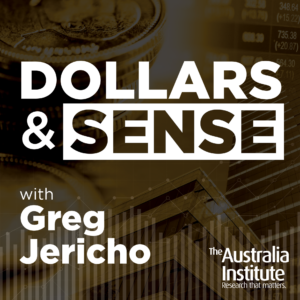What the bloody hell is a CBAM?
The EU has announced it will introduce a Carbon Border Adjustment Mechanism (CBAM) as part of its efforts to reach net zero emissions by 2050. This has big implications for the Australian economy, especially carbon intensive expor industries. This week we talk to Richie Merzian and Hannah Melville Rea about what CBAMs are, how they work, why they aren’t protectionist and how it will impact Australia.
Host: Ebony Bennett, Deputy Director at the Australia Institute // @ebony_bennett
Guest:
Richie Merzian, director Climate & Energy program // @richiemerzian
Hannah Melville Rea, Anne Kantor Fellow // @HannahMelRea
The Australia Institute // @theausinstitute
Website:
australiainstitute.org.au
Producer: Jennifer Macey //@jennifermacey
Theme Music: Pulse and Thrum; additional music by Blue Dot Sessions
Related research
Between the Lines Newsletter
The biggest stories and the best analysis from the team at the Australia Institute, delivered to your inbox every fortnight.
You might also like
Dutton’s nuclear push will cost renewable jobs
Dutton’s nuclear push will cost renewable jobs As Australia’s federal election campaign has finally begun, opposition leader Peter Dutton’s proposal to spend hundreds of billions in public money to build seven nuclear power plants across the country has been carefully scrutinized. The technological unfeasibility, staggering cost, and scant detail of the Coalition’s nuclear proposal have
Coming soon: The carbon taxes that cannot be repealed
Carbon taxes are coming to Australia whether we like it or not. They are coming despite the triumphant ‘axing of the tax’ in 2014. They are coming despite the updated but equally loud ‘technology not taxes’ sloganeering from the Morrison government in 2021. They are coming despite our government’s refusal to commit to a net-zero
Actually though, what the hell is going on in the economy?
It’s chaos out there.




